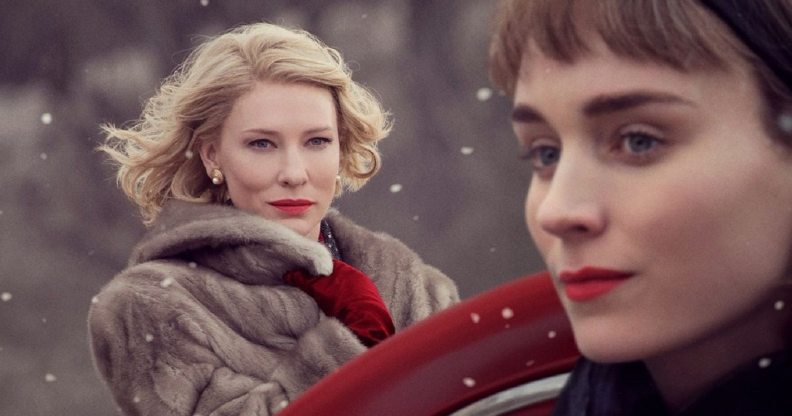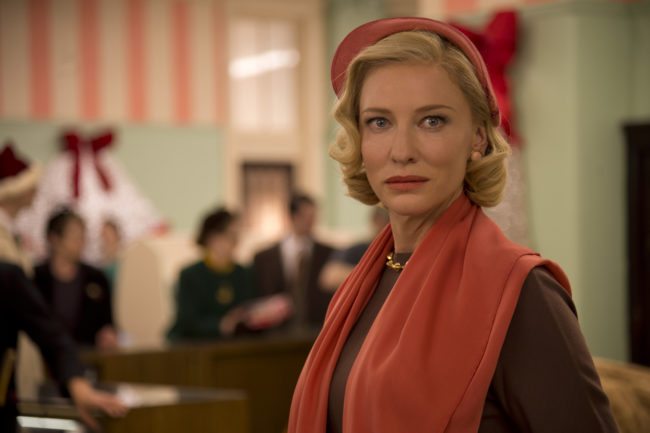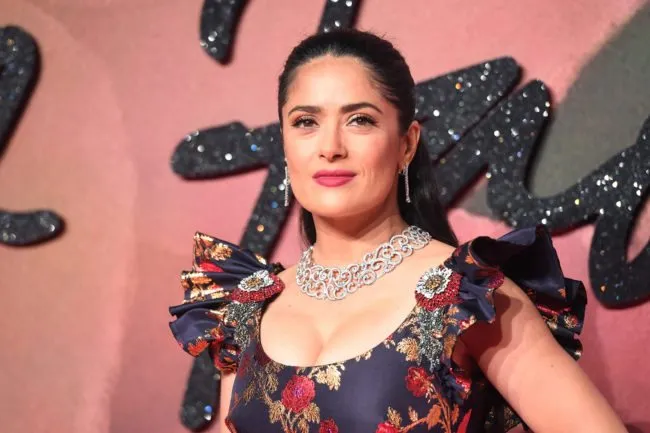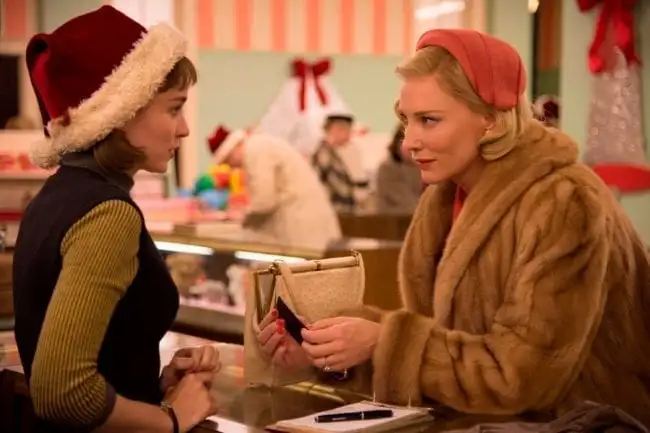Cate Blanchett speaks about Harvey Weinstein’s uncomfortable ‘Carol’ credit

Cate Blanchett and Rooney Mara in Carol. (StudioCanal/The Weinstein Company)
Carol star Cate Blanchett has addressed Harvey Weinstein’s role as the film’s executive producer.
The celebrated lesbian film, which picked up a string of awards in 2015, starred Cate Blanchett and Rooney Mara as two women in love in the 1950s.
Weinstein was listed as an executive producer on the film, but in an interview with Variety, Blanchett – who has spoken in solidarity with women who have accused Weinstein of sexual harassment – insisted he had little involvement.
She said: “He was brought on as the producer on many films that I had absolutely no say on. I didn’t have a creative or functional relationship with him.”

In a comment on the piece, Carol producer Elizabeth Karlsen added that Weinstein was given an Executive Producer credit on the film as “one of the non negotiable terms of the distribution agreement.”
Karlsen added: “He was not a producer on the film. Neither he nor TWC were involved in the development of the film nor had any script, editorial, casting or other type of creative involvement in the film whatsoever. They
“This is a frequent and frustrating misrepresentation of Harvey Weinstein and his role – he was a distributor, who stole the producing credit from the actual producers who sourced, developed, filmed and fully created the work as we did with CAROL.
“He simply released and distributed it into cinemas.”
Several Weinstein accusers have opened up about his approach to queer women and LGBT films.
Salma Hayek, who was nominated for an Oscar for her iconic portrayal of Mexican painter Frida Kahlo on 2002 film Frida, spoke about her shocking experiences of working with Weinstein on the film.

Salma Hayek (Stuart C. Wilson/Getty Images)
The actress and filmmaker alleged that she fended off a number of sexual advances from Weinstein, who attempted to get her to take a shower with him, perform oral sex, and get naked with another woman.
After her relationship with Weinstein turned sour, the actress alleges that he shut down production on her film – and forced her to agree to add an explicit lesbian sex scene.
Actress and model Cara Delevingne also opened up about her shocking homophobic encounters with Weinstein.

Cara Delevingne (Photo by Pascal Le Segretain/Getty Images)
Delevingne revealed the disgraced film mogul told her she would have no future in Hollywood if she is open about her sexuality and relationships with other women.
Writing on Instagram, she said: “When I first started to work as an actress, i was working on a film and I received a call from Harvey Weinstein asking if I had slept with any of the women I was seen out with in the media.
“It was a very odd and uncomfortable call…. I answered none of his questions and hurried off the phone but before I hung up, he said to me that If I was gay or decided to be with a woman especially in public that I’d never get the role of a straight woman or make it as an actress in Hollywood.”
Of a meeting with Weinstein, she said: “When I arrived I was relieved to find another woman in his room and thought immediately I was safe. He asked us to kiss and she began some sort of advances upon his direction.
“I was terrified that this sort of thing had happened to so many women I know but no one had said anything because of fear.”
Blanchett also appeared to confirm to Variety that she had been targeted by Weinstein.
Asked if Weinstein ever sexually harassed her, Blanchett said: “With me, yes.
“I think he really primarily preyed, like most predators, on the vulnerable. I mean I got a bad feeling from him.
“He would often say to me, ‘We’re not friends’, [because] I wouldn’t do what he was asking me to do.”

She added: “What people like Harvey have done… there are men across many industries [who have done that]. He’s been held up as an exemplar because he’s unfortunately typical of certain men.
“I’m interested in those people being prosecuted. We have to set a legal precedent.
“Part of the mission of Time’s Up is to help those who do not have the capacity to raise the funds to defend themselves and to move toward workplace equality, fairness and safety.
“When legal precedent is set by people being actually convicted, then other people can benefit from that because those precedents have been set.”

